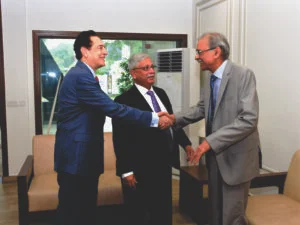
Adapting to Strategic Complexities Innovating Approaches to Arms Control in South Asia
September 10, 2024
PRESIDENT
Air Marshal Asim Suleiman (Retd)
SEMINAR COORDINATOR
Nidaa Shahid
MASTER OF CEREMONY
Shayan Jamy
Executive Summary
A seminar titled, ‘Adapting to Strategic Complexities: Innovating Approaches to Arms Control in South Asia’ was organised by the Centre for Aerospace & Security Studies (CASS), Lahore, on 10 September 2024. The seminar commenced with a keynote address by Lt Gen Khalid Ahmed Kidwai (Retd), Advisor, National Command Authority (NCA), Pakistan. It was followed by insightful presentations delivered by two eminent scholars, Dr Naeem Salik, Executive Director, Strategic Vision Institute (SVI) and Amb Zamir Akram (Retd), Advisor, Strategic Plans Division (SPD), Pakistan. An extensive Q&A session and concluding remarks by Air Marshal Asim Suleiman (Retd), President, CASS Lahore, rounded up the seminar.
Ms Nidaa Shahid, Senior Researcher at CASS, Lahore commenced the seminar by emphasising the dual nature of nuclear weapons as both a testament to human ingenuity and a significant source of global challenges. She traced the history of nuclear technology from its inception, citing Robert Oppenheimer’s poignant reflection: “Now I am become Death, the destroyer of worlds.”
She highlighted acquisition of nuclear weapons by India and Pakistan in 1998 fundamentally altered the regional dynamics, creating a delicate balance that, while not eliminating rivalries, has effectively prevented large-scale conflicts through deterrence. She reaffirmed Pakistan’s commitment to responsible nuclear stewardship and a Full Spectrum Deterrence (FSD) posture aligned with Credible Minimum Deterrence (CMD). She advocated for effective arms control measures to mitigate the risks of accidental nuclear exchanges and foster mutual trust.
Lt Gen Khalid Ahmed Kidwai (Retd) delivered a keynote address focusing on the impact of evolving global and regional shifts on strategic stability in South Asia. He emphasised that the geopolitical landscape is in constant flux due to international power dynamics and security imperatives, which creates significant strategic imbalances.
Highlighting India’s recent elections, he noted a potential shift in domestic policies but remained sceptical about any change in India’s aggressive posture towards Pakistan, particularly regarding Kashmir. Lt Gen Kidwai pointed out that the international community has largely overlooked India’s actions in Kashmir and expressed concern about the ongoing violence and human rights violations.
He argued that the US-India strategic partnership is likely to persist, driven by shared concerns about China. This partnership poses challenges for Pakistan’s security calculus, compelling it to enhance its nuclear capabilities. Lt Gen Kidwai also discussed the strategic realities created by China’s rise, which he viewed as beneficial for Pakistan’s stability by diverting India’s military focus towards its northern front. He asserted that Pakistan’s historical decision to develop nuclear capabilities as a counterbalance to India has been vital in maintaining strategic stability, especially in the face of conventional asymmetry.
He traced the urgency of Pakistan’s nuclear pursuits back to the 1971 war and India’s 1974 nuclear explosion (Pokhran-I), highlighting how these events catalysed Pakistan’s decision to develop its own nuclear capabilities. Subsequently, over the past five decades, Pakistan’s nuclear programme evolved significantly, driven by strategic vision and scientific advancements.
Lt Gen Kidwai further highlighted that the FSD policy enables Pakistan to deter aggression effectively while maintaining strategic stability. He emphasised that Pakistan’s nuclear capabilities deter not just major wars but also the Indian Cold Start Doctrine (CSD) and other aggressive manoeuvres. The historical context of these developments illustrates a gradual erosion of India’s military options in the face of a nuclear-armed Pakistan, compelling a shift from direct to indirect strategies, including hybrid warfare.
On the topic of arms control, Lt Gen Kidwai differentiated between the terms “arms control” and “disarmament,” arguing that while the former can enhance stability, the latter poses a significant risk to Pakistan’s national security by reinstating conventional imbalances with India. He criticised India’s reluctance to engage in meaningful arms control discussions, despite Pakistan’s proactive proposals like the Strategic Restraint Regime (SRR). He underscored the need for innovative arms control mechanisms that account for the realities of both nations’ nuclear capabilities, noting that without a willing partner in India, progress is unlikely.
Dr Salik’s address focused on the evolving landscape of missile technology in South Asia amidst the fourth industrial revolution. He underscored the challenges faced by missile defence systems, citing the US investments since the 1960s that have yielded only a 60 percent success rate. The Indian claims of 90 percent success rate a highly exaggerated in his assessment. Dr Salik cautioned against overestimating the potential of emerging technologies such as AI and quantum computing, noting that their real-world effectiveness and affordability remain significant barriers for many nations.
The speaker detailed the missile developments in India and Pakistan, highlighting India’s Integrated Guided Missile Development Programme and the recent advancements, such as Multiple Independently Targetable Re-entry Vehicles (MIRV) capabilities on the Agni 5 missile. He argued that while India’s achievements in miniaturisation through MIRV technology are noteworthy, the actual effectiveness of such systems against large targets like cities is questionable. He further explained that India’s shift toward a more ready nuclear posture, particularly through cannisterisation of missile systems, marks a significant change in strategic stability in the region.
In discussing the implications of hypersonic missiles, Dr Salik suggested that while their unpredictable trajectories pose challenges to traditional defence systems, their operational impact on South Asia’s nuclear posture remains limited due to already short missile flight times. He raised concerns over high-speed weapon delivery systems compressing warning and reaction times, potentially necessitating changes in command and control structures.
Lastly, Dr Salik highlighted the vulnerability of mobile missile platforms to modern surveillance technologies, such as drones and micro-satellites, which could continuously monitor and target these systems, stressing the need for a comprehensive understanding of both the capabilities and limitations of emerging military technologies.
Amb Akram (Retd) addressed the complexities of arms control and disarmament in South Asia, emphasising the significant asymmetry between India and Pakistan’s security approaches. While Pakistan perceives India as its primary threat, India views its defence needs within a broader regional context, often side-lining bilateral arms control negotiations. Amb Akram argued that traditional arms control is unfeasible between the two nations, noting that their few existing agreements primarily focus on CBMs rather than formal arms control, which are heavily reliant on mutual goodwill.
The Ambassador highlighted the effectiveness of existing CBMs, such as the Non-Attack on Nuclear Facilities agreement and the various political and military accords established over the years. He expressed scepticism regarding potential new CBMs due to India’s expanding military capabilities and reluctance to engage in bilateral dialogue. Amb Akram also critiqued the idea of a mutual No-First-Use policy, arguing that India’s strategic advantage in conventional military capabilities complicates any nuclear restraint efforts.
Moreover, the speaker discussed the challenges posed by emerging technologies and India’s collaborations with the US, which create a technological gap that Pakistan struggles to address. He indicated that without a significant shift in India’s approach, the prospect of meaningful arms control or new CBMs remains bleak.
In conclusion, he stressed that true strategic stability for Pakistan lies in maintaining a credible deterrent against India, rather than relying on arms control agreements, which he believes will not foster the necessary security assurances in the current geopolitical landscape.
In his concluding remarks, President CASS, Lahore, Air Marshal Asim Suleiman (Retd) said that these security dilemmas highlight the urgent need for a more pragmatic approach centred on confidence-building measures. In the face of rapid technological advancements and shifting geopolitical dynamics, traditional arms control frameworks may no longer suffice, he added.
He said that a modernised strategy, tailored to address these evolving challenges, is essential to fostering stability and preventing escalation in the region. Therefore, dealing with these challenges is a shared responsibility. The path forward necessitates a steadfast commitment to dialogue, trust-building, and practical risk-reduction measures. The President said that given the recent actions of the Indian leadership, the responsibility rests squarely on their shoulders. They must take the lead in creating a conducive atmosphere for dialogue. Only then can matters of mutual interest be discussed and agreed upon.
The Q&A session featured insights from all three speakers, focusing on strategic challenges in the South Asian context, particularly regarding India and Pakistan’s military dynamics. Lt Gen Kidwai discussed India’s indirect strategy, perceived as inflicting internal strife in Pakistan at minimal cost. He advocated for a shift to an offensive-defensive strategy for Pakistan, emphasising the need to increase costs for India to encourage behavioural change. He suggested targeting critical sectors in India, such as its IT industry, to create deterrence, while acknowledging that external powers could complicate such responses.
The discussion also focused on the evolving nature of nuclear deterrence, particularly concerning India’s dual deterrence strategy and its implications for Pakistan. Lt Gen Kidwai highlighted the importance of integrating military strategies across domains, while Dr Salik pointed out the challenges India faces with its diverse military hardware. In contrast, Pakistan aims to maintain a credible deterrent without engaging in an arms race.
Amb Akram asserted that the abrogation of Article 370 has intensified the Kashmir issue, making it a greater nuclear flashpoint involving India, Pakistan, and China. He emphasised the deteriorating security environment in Kashmir, compounded by growing unrest and increased Indian military presence.
The panel also addressed climate change as a potential threat multiplier. Amb Akram expressed scepticism about climate cooperation, citing India’s unilateral actions in water management and its reluctance to engage with Pakistan on critical issues, including responses to the COVID-19 pandemic.
In summary, the session highlighted the complex interplay of military strategy, nuclear deterrence, regional conflicts, and emerging challenges, which continue to shape the dynamics between India and Pakistan.
Guest Speakers
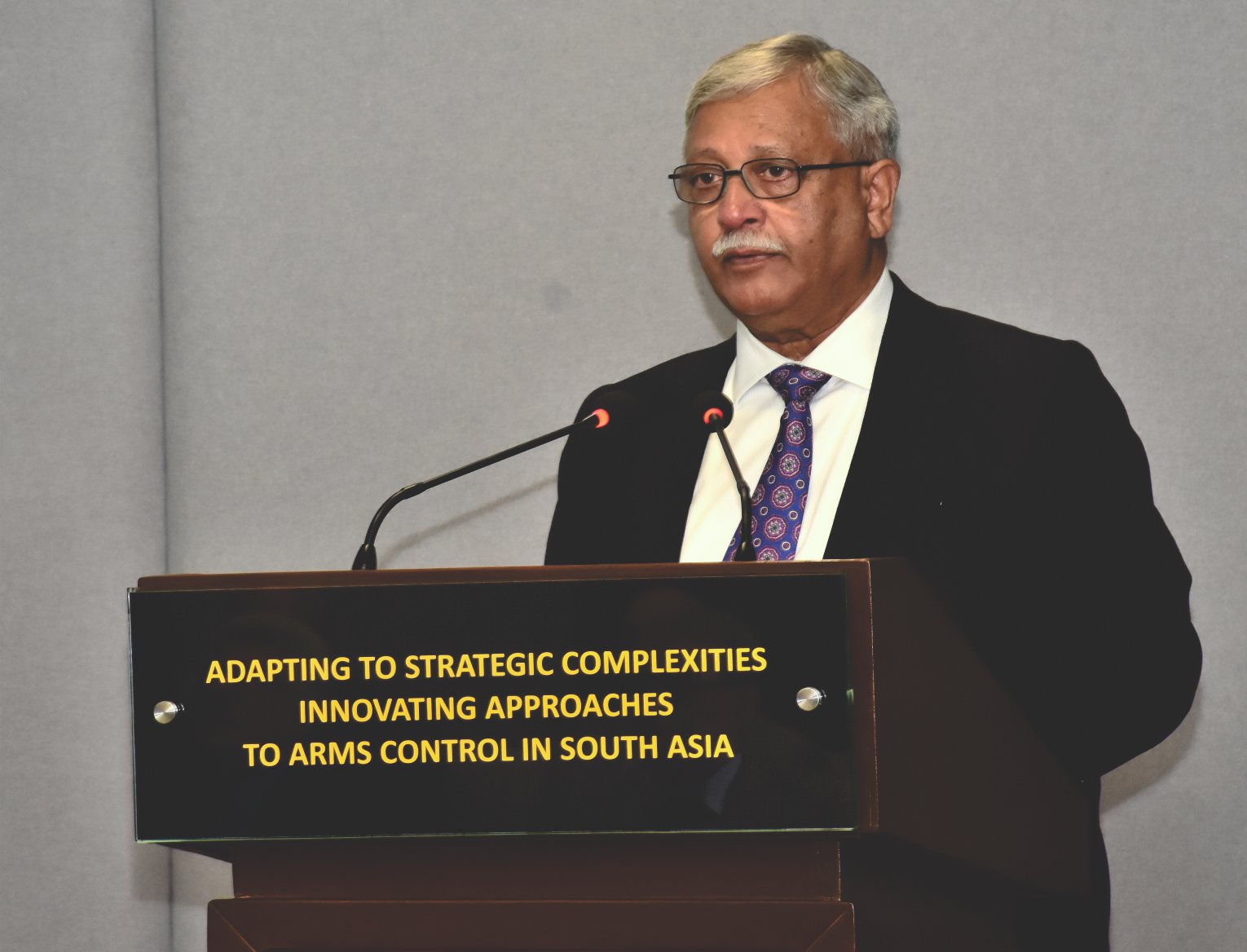
Lt General Khalid Ahmed Kidwai (Retd)
Advisor, National Command Authority (NCA)
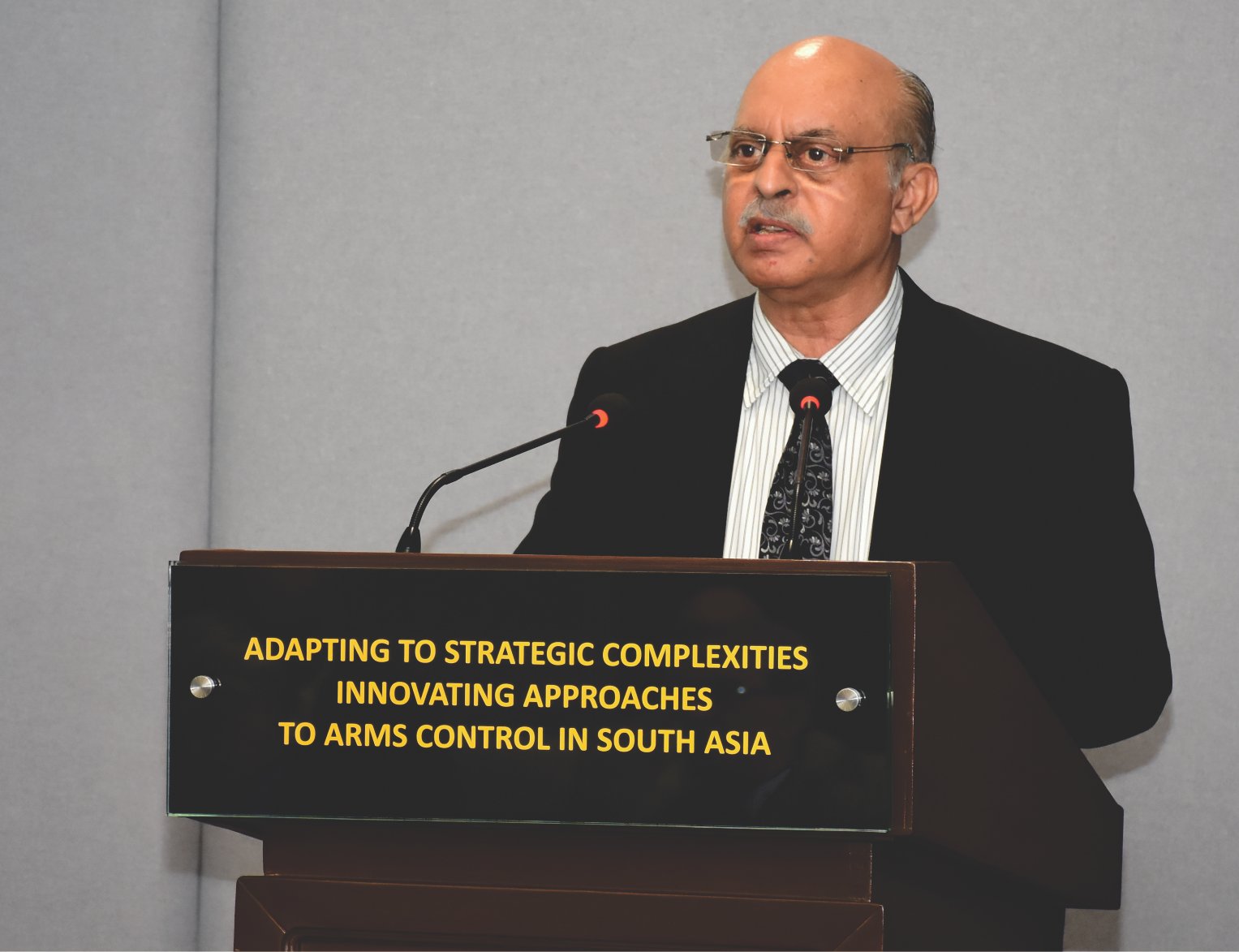
Dr Naeem Salik
Executive Director, Strategic Vision Institute (SVI)
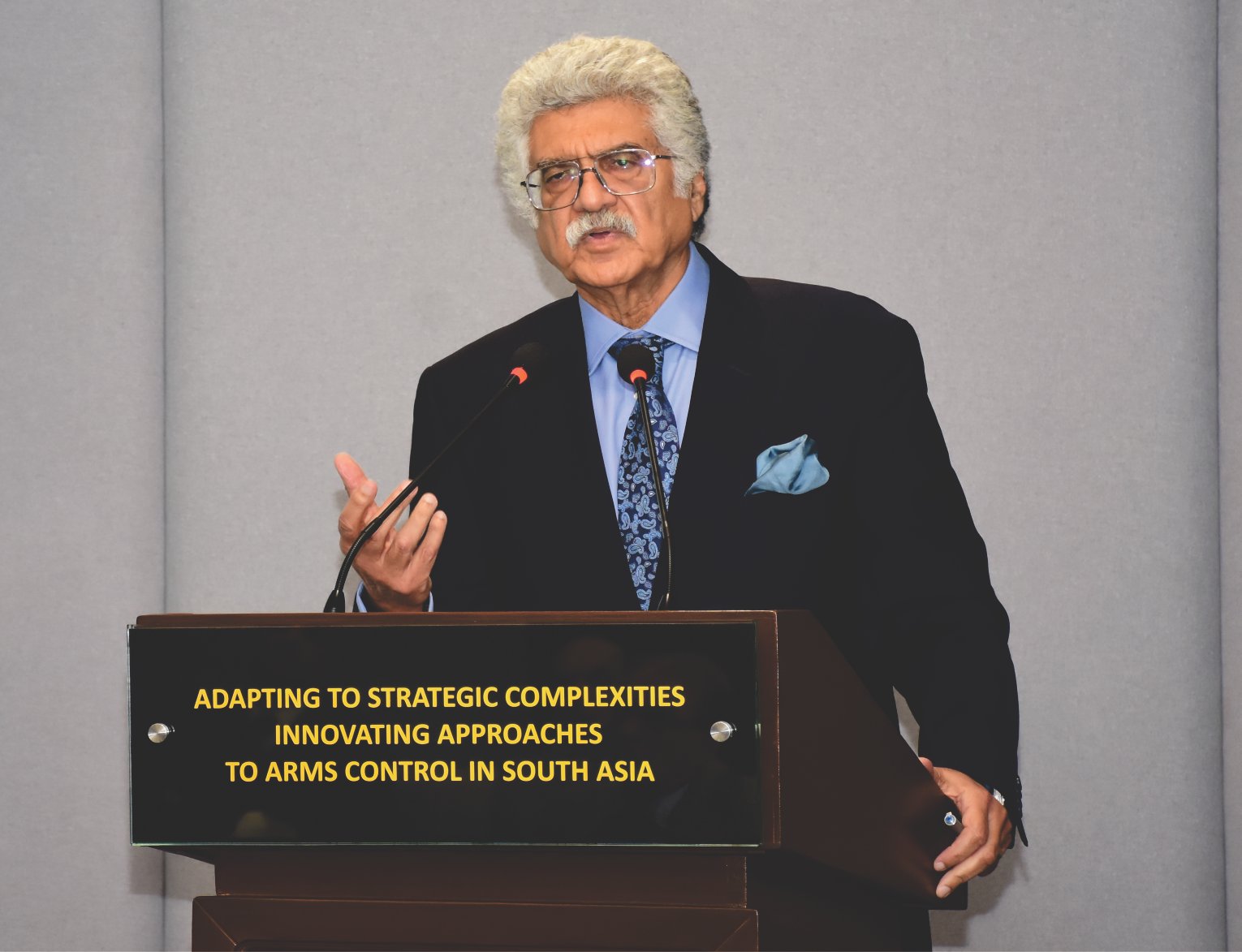
Amb Zamir Akram (Retd)
Advisor Strategic Plans Division (SPD)
CASS Speakers
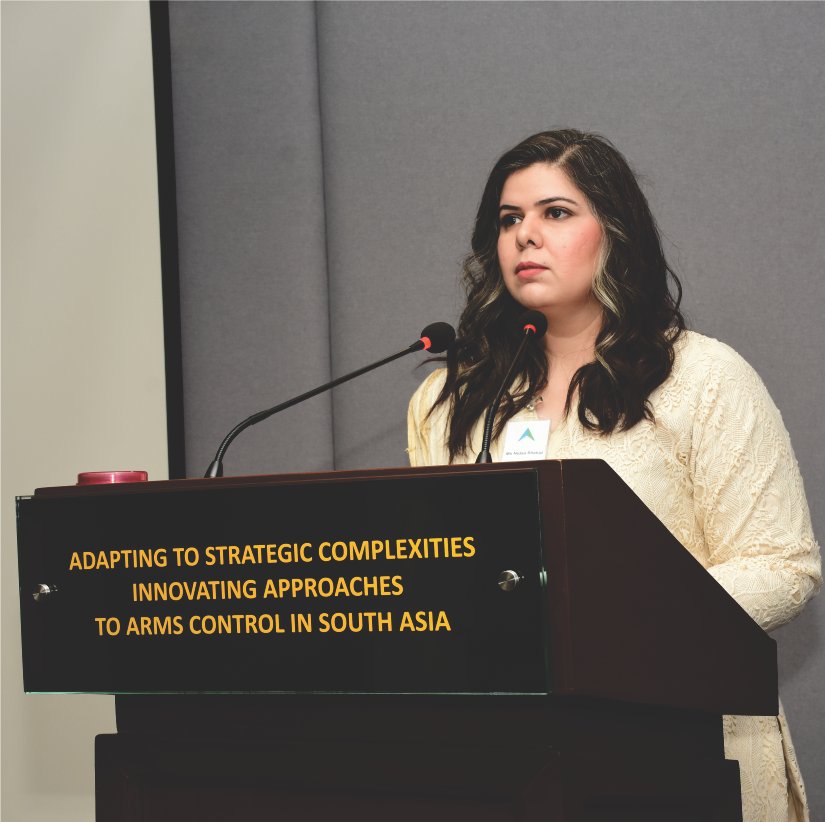
Nidaa Shahid
Senior Researcher CASS
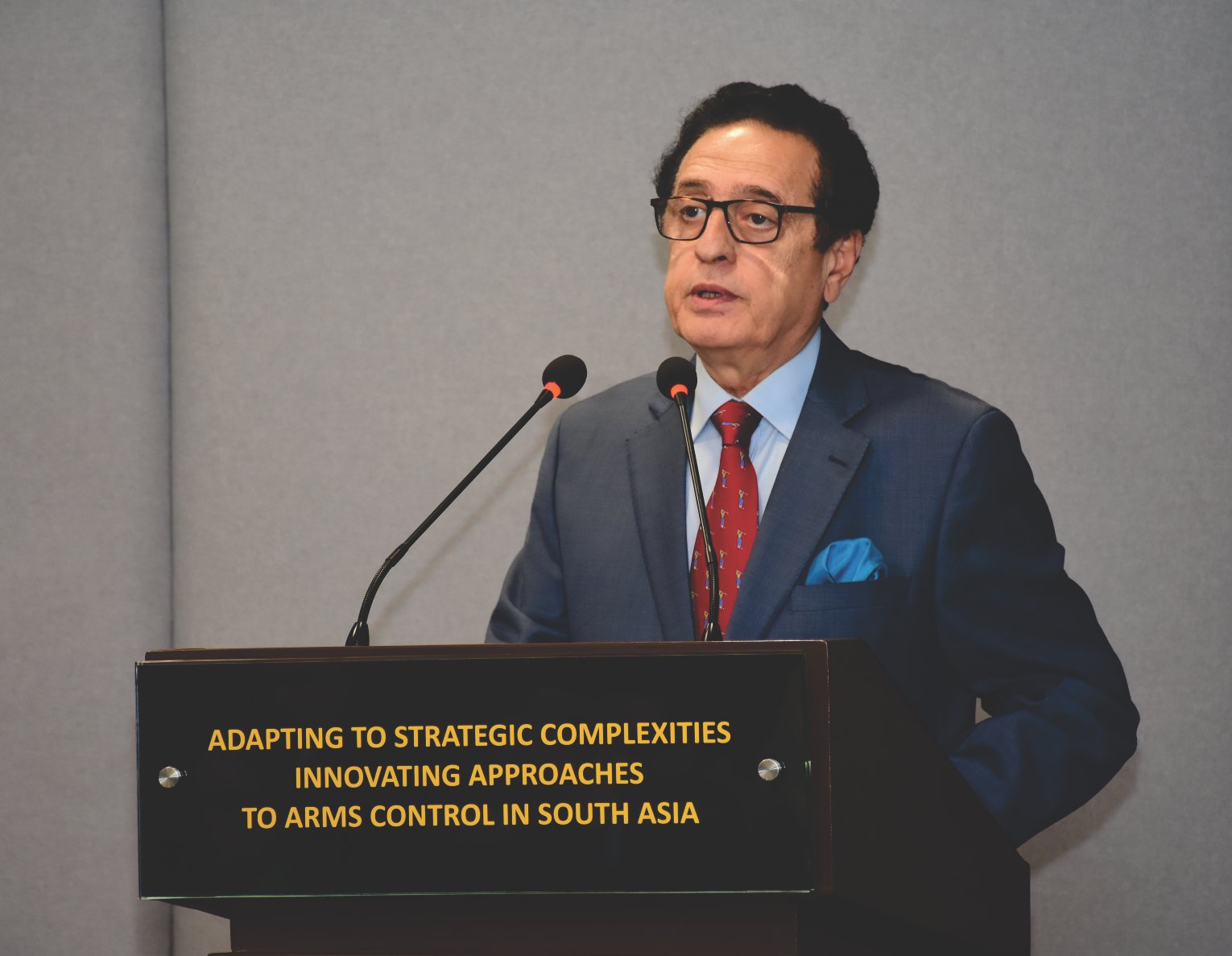
Air Marshal Asim Suleiman (Retd)
President, CASS, Lahore
CASS LAhore

The Centre for Aerospace & Security Studies (CASS) was established in July 2021 to inform policymakers and the public about issues related to aerospace and security from an independent, non-partisan and future-centric analytical lens.


